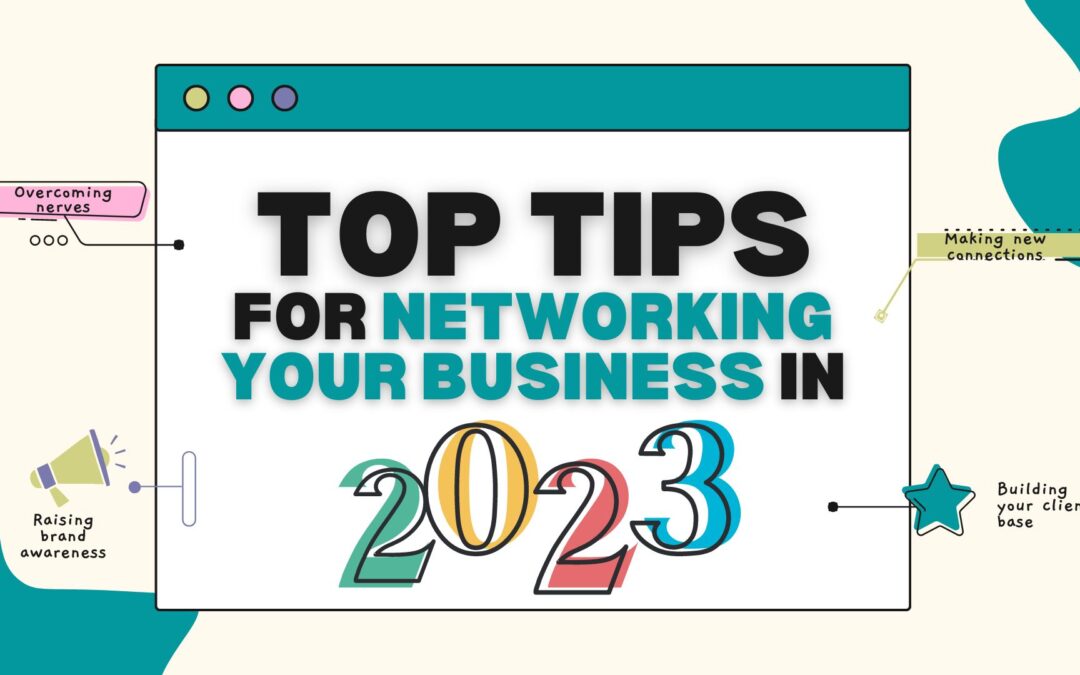
Business networking may not be a top priority if you run a start-up, but it should be. As well as raising awareness about what you do, there is a lot that can be learned from other people in business.
Building connections and boosting your skill set from others’ experiences are valuable tools that can accelerate your brand.
A long-term commitment to networking is known to increase referrals. Less recognised is the invaluable support such business events provide.
If you believe there is always more to learn and want to network your business for growth, connecting with businesses that could eventually increase your client base is a no-brainer.
In this guide, we will share tips that will help you select a networking group that’s right for you. We will also explain what to expect, how to cope with nerves and how to court potential customers.
Selecting a Networking Event
Your time is money, so don’t waste it attending events that are unlikely to attract the type of people you want to connect with.
Advantage Business Mentoring suggests you ask people you trust to recommend one instead.
Business mentor Mike Monk says: “Get some feedback. Find out how many people usually attend and what types of positions they hold in a business.
“If you are a start-up, it is also worth asking how much membership to a networking group and event attendance is going to cost. For time management and productivity purposes, you will also need to know whether an event is a breakfast or lunch meeting.”
Before committing to a specific business networking group, find out how long it has been going. Do they regularly attract good numbers and are other attendees people you want to talk to? This is especially important if you run a sector-specific brand.
Do your research, so you don’t lose valuable time attempting to interact with an audience that is not interested in what you do.

Researching Events
If you haven’t had a personal recommendation but have spotted an event that interests you, find out more.
You can learn a lot from an organiser’s website. For example, are there any pictures of recent events? If yes, do they look busy? How regularly is the event held and what’s the speaker list looking like for upcoming events?
Don’t overlook the group’s presence on social media. Avoid just poring over follower numbers – are posts up-to-date and is there plenty of engagement? Look for positive signs that an event is thriving.

Getting Started with Business Networking
Found an event you want to attend? If you are new to networking, it is always worth reaching out to an event organiser in advance. Some offer complimentary introductions to make the start of your networking journey easier.
Mike points out: “Do they send you an attendee list a day or two before the event? If they do, use it to pinpoint the people you want to meet. Make a mental note of who they are. If you feel you can, ask to be introduced to them.”
The Essentials
Don’t leave home or the office without business cards, a pen and a notepad. Exchanging contact or business information is a staple of networking. A notepad can help you record anything educational or inspiring during a talk. Something someone says could give you a brilliant idea or even remind you to carry out an important task.
Remember to keep your expectations realistic.
Mike is quite clear on this tip: “Don’t expect to be inundated with enquiries during your first two or three times at the event. Networking is a long game, but it is worth remembering that people buy from people. Building trust in you as a person and your brand is what you should be initially aiming for. You can achieve this through regular attendance and by interacting with as many people as you can.”

Overcoming Nerves
Most people are nervous when they start attending business networking events. It is normal.
Being nervous shows you care about what you do and that you want to make the right impression.
“Take deep breaths, try to relax and smile,” says Mike. “Be friendly, listen to what people have to say and ask them how their business is going. Think about what you can offer them to help them in their business. When you want to move on to talk to another group of people, thank them for their time, shake their hand and, if you feel it is the right time, exchange business cards.
Building Connections
Feel you have connected with a few people at an event? Why not send them an email or text thanking them for their time and suggesting catching up over a coffee? If the connection is located a long way from you, a Zoom call is now an accepted alternative.
Don’t wait. Follow up on any new connections within 24 hours, so your interaction with them will still be fresh in their mind.
Mike says such follow-ups are often overlooked but are essential when it comes to extending your circle of business connections.
“Follow up, follow up, follow up…” is his advice.

Business Networking for Profit
There is no doubt that regular networking can increase sales. However, that is unlikely to happen overnight. In the meantime, business networking can prove invaluable in terms of learning from others.
It is also a recognised way to build support for what you do. As well as making connections in a nurturing environment, networking will help keep you in the loop and could even flag potential new opportunities.
Think of networking as an investment. The more you put into it, the more you will benefit.

